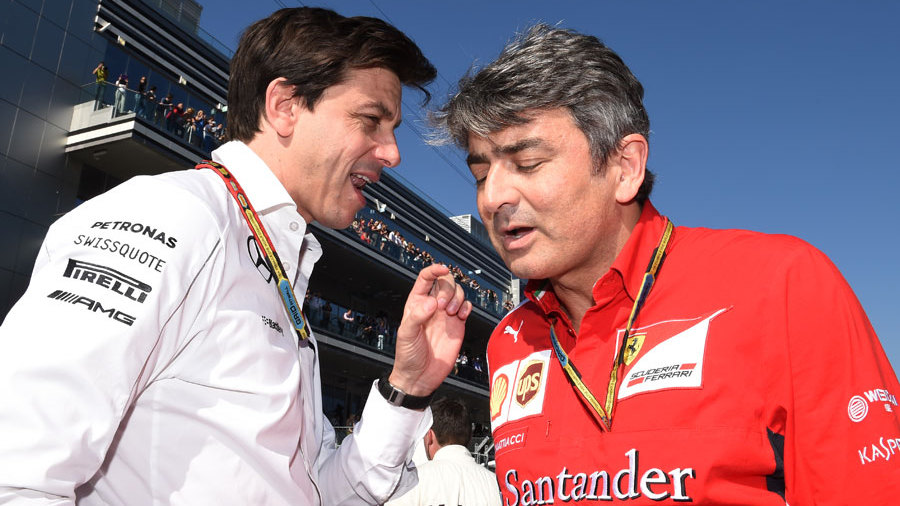- Mercedes
Mercedes unlikely to end engine unfreeze opposition

Toto Wolff says Mercedes is unlikely to waver on its opposition to a proposed lift on engine freeze regulations when the proposed rule change goes to the F1 Commission later this year.
F1's engine freeze
- Current rules state a certain amount of development can be undertaken on engines year-on-year, with manufacturers able to change 48% of 45 engine components at the end of the current campaign.
- But changes are only allowed to take place out of season and will be scaled down from 2015 onwards. This season engines were homologated on February 28, after which point changes were only allowed for reliability, safety or cost saving reasons.
- As a result of that homologation, Renault and Ferrari have spent much of 2014 on the back foot and unable to cut the advantage enjoyed by Mercedes power.
In Sochi the sport's Strategy Group, which includes the top six teams, the FIA and Bernie Ecclestone, voted by a majority to allow in-season engine development - though Mercedes, Williams and Lotus are believed to have voted against the proposal, with the latter due to become a customer next season. However, for it to be implemented for 2015 it needs a unanimous vote from the F1 Commission, a body which includes Mercedes.
Mercedes executive director Wolff says his opposition to the proposed change has nothing to do with the manufacturer's current position of dominance but because the team wants to protect the stability of F1.
"We have already voted against it in the Strategy Group and I don't think we will change our mind in the next month or whenever the meeting will take place," Wolff said. "We have rules and we have governance, and the governance is in place in order to avoid quick, knee-jerk decisions being made that upset stability, upset the commercial setup and I strongly believe you cannot change rules in October for the following year just because you think they don't suit you.
"Because there is a governing process in place, the F1 Commission needs to vote on that anyway. And if the F1 Commission is not unanimous in that particular case for next year then that is absolutely right because you cannot vote for stuff three months before the new season starts. In no business does this go on. So, for 2016 we are going through an ordinary process, we are going to have a look at it again and then decide whether it is the right thing to do.
"We've looked at it because we wanted to take up the challenge and say 'okay, somebody wants to do in-season development, what's the in-season development? Let's take the challenge up'. But what does it mean as a consequence for the series itself? What does it mean commercially? How much does it cost? I think as a serious business you have to explore these costs and not just say 'why don't we do it?' So we need to explore those costs and also you need to look at what it means logistically."
Wolff says cost concerns are also a big motivation in his stance against an engine unfreeze.
"We are a team with three customers, including ourselves four customers, so whatever we do we need to be able to develop a power unit and deliver a power unit that is the same for everybody. It's different to Honda which has one customer only, it's different to Ferrari that has two customers and we don't know next year, and different for Renault again. All these things need careful evaluation, needs thorough analysis and assessment and then we can take a decision."
Ferrari boss Marco Mattiacci - who first proposed the idea at Spa - has previously said such a change would not cost manufacturers any more than they spend currently, an opinion Wolff believes is hard to justify.
"I don't know how they make their calculations, but we probably need to send them a calculator. There is no way you are not spending more, you would be spending considerably more. Everything else and every other argument is just because they don't think they are where they should be.
"We are developing a power unit until the end of the year then the power unit is being manufactured, frozen and delivered to the customers. At the same time it is hopefully at the same spec for everybody. If you have another development cycle in-season and you bring a new spec in-season for the end of June or July then the whole development process - the most expensive part, by the way, is running parts on the dyno - is happening twice a year."